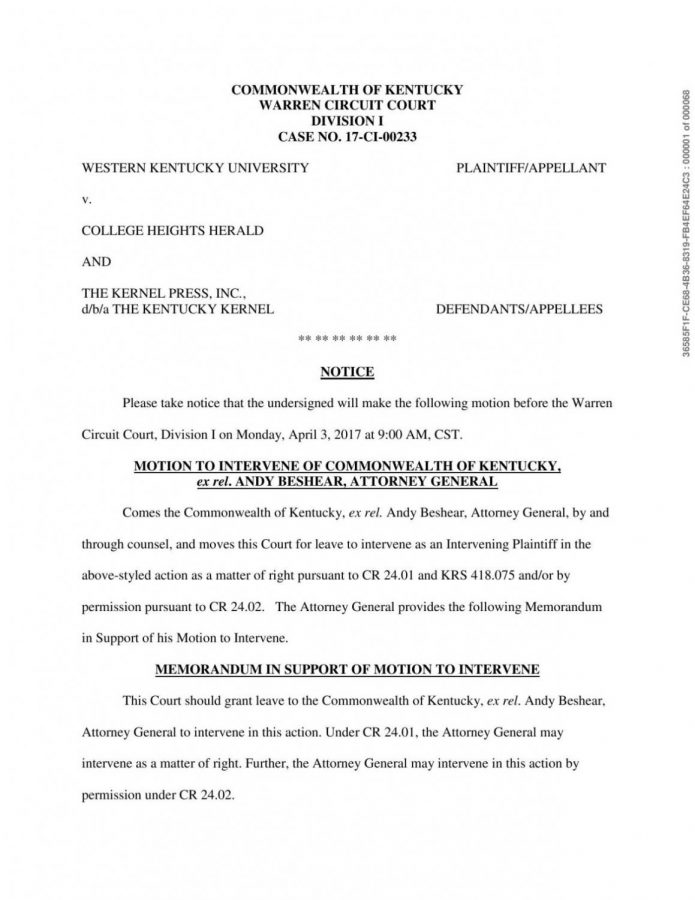Attorney General files motion to intervene in WKU, Herald lawsuit
March 23, 2017
Kentucky Attorney General Andy Beshear filed a motion last Thursday to intervene in WKU’s lawsuit against the Herald and the Kentucky Kernel, the University of Kentucky’s student newspaper, to defend his ruling WKU violated Kentucky’s Open Records Act.
WKU filed the lawsuit on Feb. 25 after Beshear’s opinion in January ruled WKU had violated open records laws by refusing to release Title IX records related to employee sexual misconduct as requested by the Herald and the Kernel.
After WKU refused to provide the records to the Herald in November, Beshear requested to review the withheld documents. WKU refused to provide the records to the Attorney General’s office, who then requested redacted copies of the records to protect the names of students, which WKU again refused to provide.
According to Beshear’s motion to intervene, WKU’s refusal to provide his office with the records “severely impaired the Attorney General’s ability to issue a reasoned open records decision in the matter.”
The motion stated “The Attorney General must protect the Commonwealth from the harm that the University’s unlawful actions will cause.”
“It’s a significant development,” Michael Abate, the attorney representing the Herald in the lawsuit, said. “The Attorney General almost never takes the step of intervening in a pending open records decision, so it’s a pretty big deal.”
In the lawsuit, WKU expressed its controversy is with the Attorney General’s decision ruling WKU violated the Open Records Act, not with the Herald or the Kernel.
According to a press release from the AG office, “An appeal by the Attorney General carries the force of law unless a decision by his office is challenged in circuit court. WKU is challenging Beshear’s decision by suing the student newspapers since a university cannot sue the Attorney General.”
In its response to the lawsuit, the Herald denied WKU’s allegations that disclosure of the requested records would “significantly stifle complainants from reporting sex and/or gender-based discrimination” and the Family Educational Rights and Privacy Act protects the requested files from public disclosure.
The Herald’s response also denies the AG decision was “erroneous,” as stated in the lawsuit, and the AG decision is contrary to the Kentucky Open Records Act and FERPA.
WKU’s lawsuit stated the case is “virtually identical” to the Fayette Circuit Court case in which the University of Kentucky appealed the AG decision that UK provide requested records to the Kernel, which the Herald’s response also denied.
When he visited WKU last month to speak about a sexual assault awareness campaign, Beshear told a Herald reporter he strongly disagrees with both WKU’s and UK’s claims that withholding the public records protects sexual assault victims.
“A bad actor could call anything a FERPA document,” Beshear said. “I’d never be able to see it as Attorney General in our legally confidential process, and they could get away with hiding a lot of things.”
Reporter Emma Austin can be reached at (270) 745-0655 and [email protected].
























